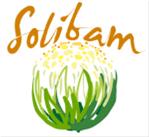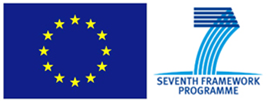

A week of activities related to the EU-funded project “Strategies for Organic and Low-input Integrated Breeding and Management” (SOLIBAM, www.solibam.eu) took place from 16th -20th April 2012 near Rome, Italy. SOLIBAM is a 4.5 year international project involving 22 partners from 12 countries across Europe and Sub-Saharan Africa. The overall objective is to develop specific breeding approaches linked to management practices to improve the sustainability, quality and performance of crops adapted to organic and low-input systems in Europe and Africa.
Now in its second year, this week of SOLIBAM activities included the annual project meeting, based around three topical, cross-disciplinary workshops, and the inaugural “Stakeholder Congress” addressing the role of diversity in shaping the future of low-input and organic cropping systems. Sally Howlett reports on the proceedings.
There were also opportunities to see local approaches to organic/low-input production and diversity conservation in action through field visits to the Centro di Ricerca per la Frutticoltura (Italian Fruit Tree Research Centre), the Capodarco Agriculture Co-Operative Society and Casale Mattia, an organically managed vineyard.
Topical workshops at the annual meeting focused on 1) The application of on-farm research, 2) Using SOLIBAM strategies to redesign farms and food systems and 3) Molecular aspects in the study of plant adaptation. In the first of these workshops, led by Riccardo Bocci (AIAB), Geza Kovacs (Hungarian Academy of Science) and Salvatore Ceccarelli (ICARDA), the wide ranging discussion covered both practical and statistical issues related to working with the complex diversity characteristic of organic and low-input systems. This drew on the experiences of researchers from across a wide range of countries in Europe and Africa, and the distinction between ‘on-farm’ and participatory research was made, with the crucial difference being the clear role of farmers as breeders in the latter case. A highlight of the second workshop, organised by Thomas Nemecek and Michal Kulak of FDEA-ART Agroscope (Switzerland), was an interactive group session based around a number of large and small scale case study farms that form part of the project work package looking at environmental, economic and social sustainability assessment of SOLIBAM strategies. These farms and farmers were all faced with their own particular challenges related to national regulations, economies of scale and proximity to their markets. The groups discussed how the approaches of SOLIBAM might be applied to each of the farms and the magnitude of possible benefits. The final workshop, led by Isabelle Goldringer of INRA (France) focused on the role of genetic markers in studying evolutionary adaptation. Very clear presentations were given explaining the technique to those non-geneticists in the audience, with specific examples from work completed to date within the project. This illustrated how the various disciplines represented within SOLIBAM, including field trials and laboratory studies, fit together to produce a picture of what is happening during adaptation at multiple levels.
The Solibam Stakeholder Congress was held in San Nilo Abbey, Grottaferrata near Rome and its aim was provide an international forum for discussion amongst relevant stakeholders around four topical themes:
The themes were chosen to reflect some of the main pressures facing agricultural systems worldwide and how, in the light of these, we might ensure food security and food quality while maintaining environmental and socio-economic sustainability. Participation was open to all interested in Solibam’s focus within the wider context of these key issues. Each session comprised presentations from the invited speakers, followed by a response from a SOLIBAM partner who related the session’s topics to the project’s aims and strategies. Discussion was then open to the audience from whom there were some interesting questions and lively exchanges.
The closing session of the congress, Shaping Diversity Research, was chaired by Martin Wolfe (ORC) and ended with an extremely engaging presentation by Philippe Baret (Université catholique de Louvain, Belgium) on the subject of institutional and technological lock-in situations which can hamper innovation needed for transition to more sustainable agricultural approaches. Taking Belgian Blue cattle as an illustration, Philippe showed how lock-ins can develop.
The Belgian Blue as a breed is characterised by heavy muscling as a result of a heritable mutation in a gene involved in muscle development. Its consequent increased ability to convert feed into lean muscle results in meat with a low fat content: highly marketable, despite the physical implications of the condition meaning that neonatal calves routinely have to be delivered by Caesarean section because their size, and the musculature of the mother, means they cannot be born naturally. In this case, a closed circle of different parties (farms, breeders, scientists, consumers, butchers and vets) serve to perpetuate a development which is not adaptive in the ecological or biological sense. Many other examples can be found in the literature. Philippe ended his presentation with the message that agriculture needs radical innovation to effect transition to more sustainable practices based on agroecological principles.
If you would like to read more about the topics covered in the Congress, presentations will soon be available via the Solibam website www.solibam.eu. The research leading to these results has received funding from the European Community’s Seventh Framework Programme (FP7/ 2007-2013) under the grant agreement n°245058
ORC is a partner in the SOLIBAM project – further details
